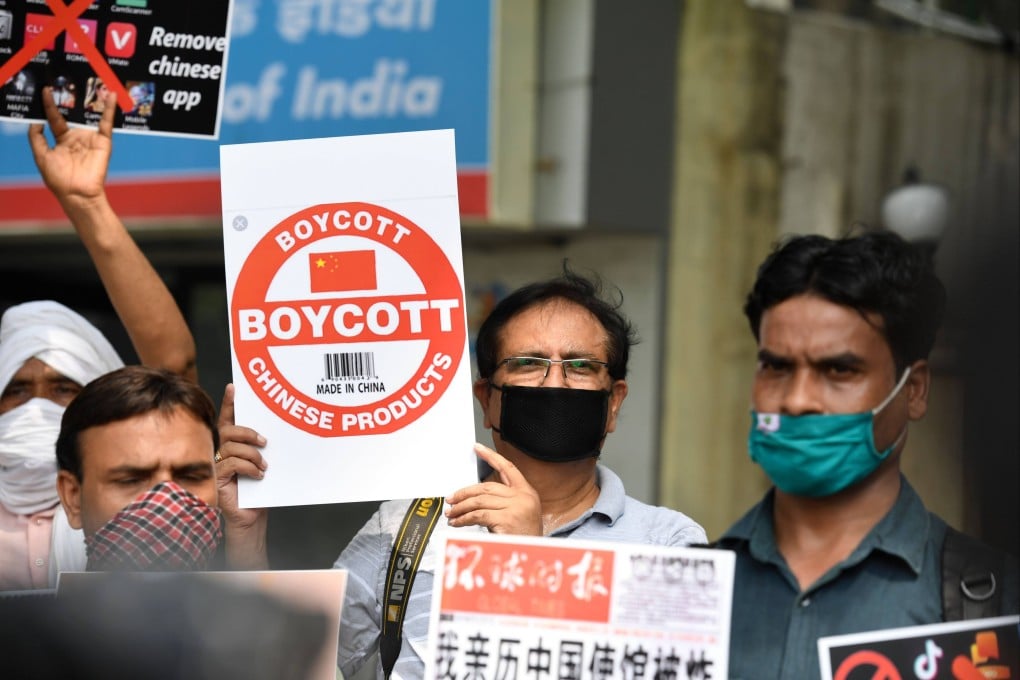India’s latest ban on Chinese apps casts shadow over mainland tech firms’ global ambitions
- Indian authorities have banned 54 more Chinese-linked apps, citing security concerns, according to a local news report
- Geopolitical tensions and value differences have contributed to India’s continuous scrutiny of Chinese apps, analyst says

India’s latest move to ban more Chinese apps points to worsening prospects for tech companies from China operating in the South Asian nation, analysts said.
While the apps banned this time include few that are as famous as Tencent’s super app WeChat and ByteDance’s short-video sharing platform TikTok – both of which have already been blocked – India’s action indicates a “more fundamental fragmentation of the digital landscape” that has been under way for years, said Alex Capri, a research fellow at Hinrich Foundation.
India, a growing economy, is seen by many Chinese tech companies as fertile ground to grow their businesses by replicating experiences at home. But while China’s Xiaomi, Vivo, Oppo and Realme have become dominant players in India’s smartphone market, many Chinese apps that were once popular in the South Asian country have been banned from use.
The geopolitical tensions and “value differences” between China and India have contributed to New Delhi’s persistent scrutiny of Chinese apps, according to Capri.
Some of the latest banned apps are owned by small Chinese tech firms. Conquer Online II, a multiplayer online game, was created by Fujian-based NetDragon Websoft, while Viva Video Editor, a video editing app, is developed by Hangzhou-based QuVideo. Neither company responded to a request for comment on Tuesday.
One of the banned apps, the mobile game Garena Free Fire, is developed by a Singapore-based company founded by a Chinese entrepreneur, who later became a citizen of the city state. The game took off in India after Tencent’s PUBG Mobile, a similar game, was banned in September 2020. Tencent currently holds an 18.7 per cent stake in Garena’s parent company Sea Limited, Southeast Asia’s most valuable technology company.